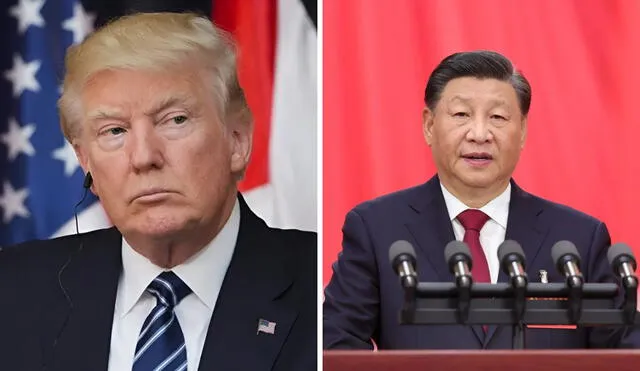China now faces 245% tariff imposed by Trump on chinese goods
Trump’s tariff escalation pushes China to boost economic self-reliance, intensifying the global stakes in the U.S.-China trade war.

President Donald Trump intensified trade tensions with China by imposing a 245% tariff on Chinese electric vehicles (EVs), citing concerns over unfair trade practices and national security.
This move significantly escalated the ongoing trade war between the two largest global economies, affecting various industries and prompting swift responses from Beijing.
China strikes back with tariffs and tech probes, shaking global markets
China retaliated by implementing its own tariffs on U.S. goods, including a 15% tax on coal and liquefied natural gas, and a 10% levy on crude oil, agricultural machinery, and large-engine vehicles. Additionally, Beijing launched an anti-monopoly investigation into Google and added U.S. firms PVH Corp and Illumina to its "unreliable entity list," citing discriminatory practices against Chinese companies.
The escalation led to significant volatility in global financial markets. U.S. stock indices experienced sharp declines, with the S&P 500 falling by 3.45%, the Nasdaq by 4.31%, and the Dow Jones by 2.54%. Analysts warned that the aggressive tariff policies could push the U.S. economy toward a recession, with former Treasury Secretary Janet Yellen describing the tariffs as the "worst self-inflicted wound" on a strong economy. Here’s the list of products and their corresponding tariffs:
- Syringes and needles – 245%
- Lithium-ion batteries – 173%
- Squid (seafood) – 170%
- Wool sweaters – 169%
- Plastic plates – 159%
- Toasters – 150%
- Electric vehicles – 148%
- Toys, dolls, puzzles – 145%
- Vitamin C – 145%
- Aluminum foil – 75%
- Car wheels – 73%
- Semiconductors – 70%
- Metal furniture – 70%
- Car door hinges – 67%
- Laptops – 20%
- Children's books – 0%
China rallies allies and bolsters self-reliance amid prolonged trade tensions
In response to the escalating trade war, China emphasized its readiness to withstand economic pressures, invoking nationalistic rhetoric and drawing on past experiences to activate a pre-planned retaliation strategy. Beijing also sought to strengthen alliances with other nations affected by U.S. policies, advocating for a multilateral trading system and emphasizing domestic consumption to reduce reliance on exports.
The renewed trade conflict has raised concerns about the long-term implications for global supply chains, particularly in sectors like technology, energy, and agriculture. As both nations continue to implement retaliatory measures, the prospect of a resolution remains uncertain, with potential repercussions for international trade and economic stability.
Trump open to China trade deal—But says Beijing must make the first move
Amid escalating tensions in the trade war, White House Press Secretary Karoline Leavitt stated that President Donald Trump remains open to a new trade agreement with China. However, she emphasized that Beijing must take the first step toward negotiations. In response, Chinese officials said they are also willing to engage in talks—but only if the U.S. treats them with respect. To prepare for future discussions, China has appointed a new contact person to lead communications with Washington.
Meanwhile, the impact of the newly imposed U.S. tariffs on Chinese goods is far-reaching. The measures target a wide array of products, including medical devices, batteries, seafood, electronics, and clothing—with tariff rates reaching up to 245%.
These moves not only put pressure on importers but also risk driving up prices for American consumers, adding further uncertainty to the U.S. economy.














